KURT SCHWABE
LEGACY
Kurt Schwabe was a German chemist and is considered a pioneer in electrochemical sensor technology.
KURT SCHWABE (1905-1983)
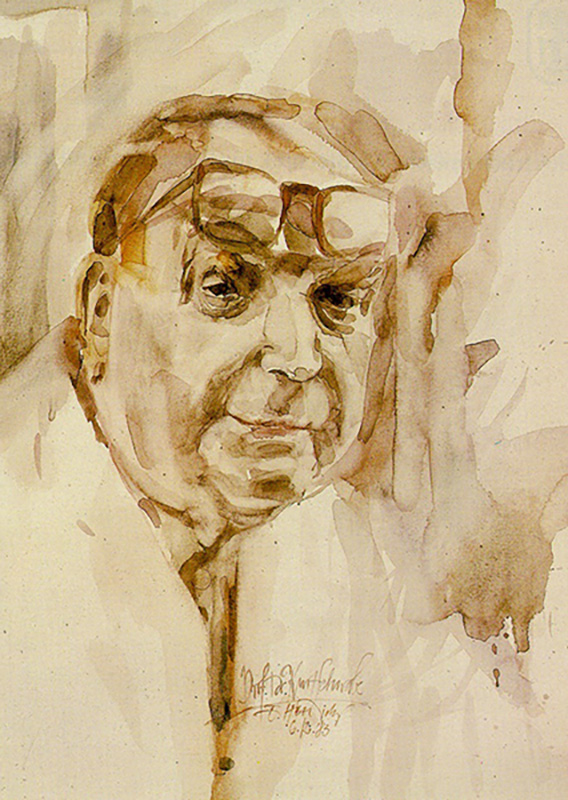
Prof. Kurt Schwabe
Watercolor by Eberhard Heinicker, 1975
Born on May 29, 1905, in Reichenbach (Vogtland, Germany), Kurt Schwabe was a pioneering scientist in electrochemistry and radiochemistry. His lifelong contributions to research and academia shaped various scientific institutions in Germany.
KEY CAREER MILESTONES
- 1945 – Founded the present-day Kurt Schwabe Institute for Measurement and Sensor Technology Meinsberg e. V., originally established as the “Research Institute for Chemical Technology.”
- 1949 – Appointed Director of the Institute for Electrochemistry and Physical Chemistry at the Technical University of Dresden.
- 1958–1969 – Led the Radiochemistry Division at the Central Institute for Nuclear Physics in Rossendorf.
- 1961–1965 – Served as Rector of the Technical University of Dresden, overseeing its transformation from a technical college to a university.
- 1965–1980 – President of the Saxon Academy of Sciences.
- 1965–1971 – Founded and directed the Central Office for Corrosion Protection in Dresden.
- 1971–1980 – Vice President and Presidium Member of the Academy of Sciences of the GDR.
- 1980 – Appointed Vice President of the International Society of Electrochemistry.
LEADERSHIP SUCCESSION AT THE KSI
The Kurt Schwabe Institute (KSI) was founded by Prof. Kurt Schwabe in November 1945, and he led the institute until his passing on December 4, 1983.
On January 27, 1984, Prof. Heiner Kaden assumed leadership of the institute, serving as director of the Research Institute “Kurt Schwabe” (FIS) until November 5, 1993.
Following this, on November 6, 1993, the institute was re-established as a state institute of the Free State of Saxony, adopting its current legal form as a non-profit registered association under the name “Kurt Schwabe Institute for Measurement and Sensor Technology e.V. (KSI).”
The newly founded KSI was led by Prof. Reinhard Schmidt, who was appointed as both chairman and acting scientific director, roles he held until March 31, 1999.
From April 1, 1999, to March 31, 2010, Prof. Hans Ulrich Guth served as chairman and director of KSI.
On April 1, 2010, he passed on these responsibilities to Prof. Michael Mertig, who led the institute until July 31, 2024.
Since August 1, 2024, Prof. Ulrich Rant has been serving as the chairman and director of the Kurt Schwabe Institute.
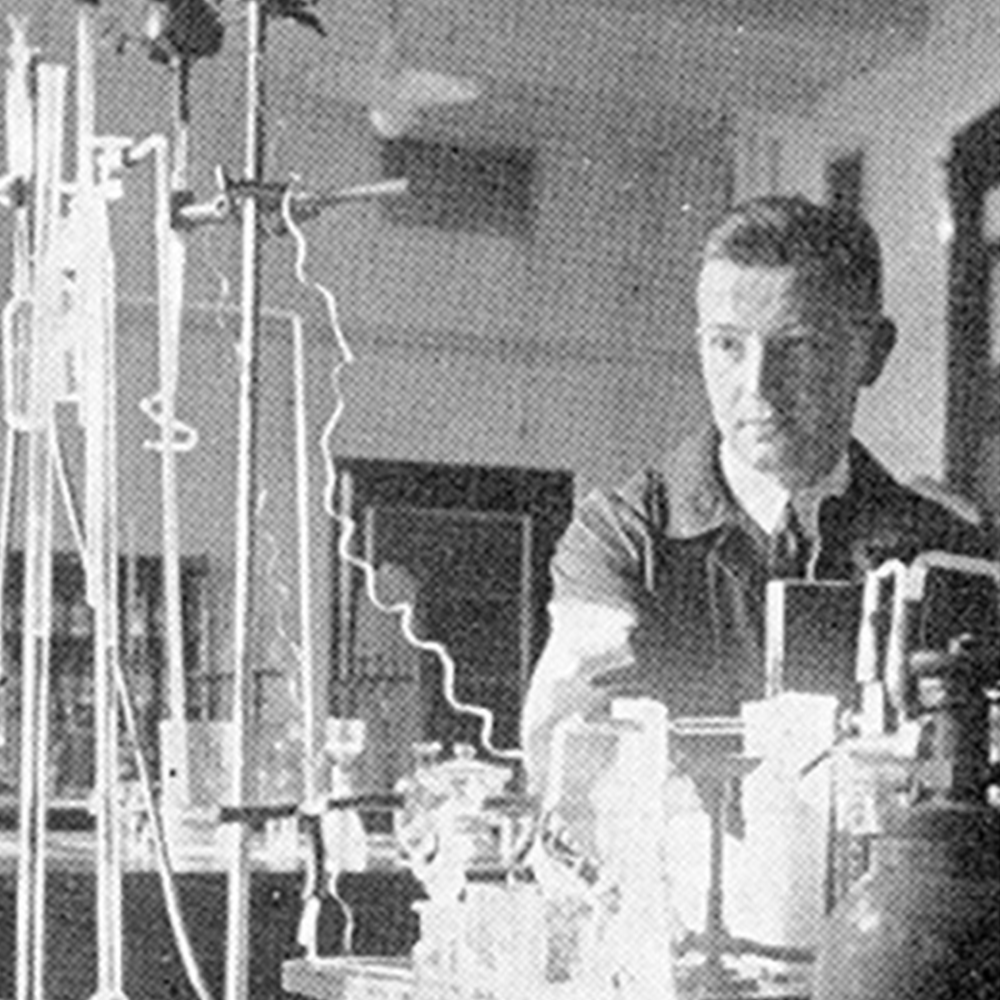
Kurt Schwabe as a student at the Technical University of Dresden, 1922.
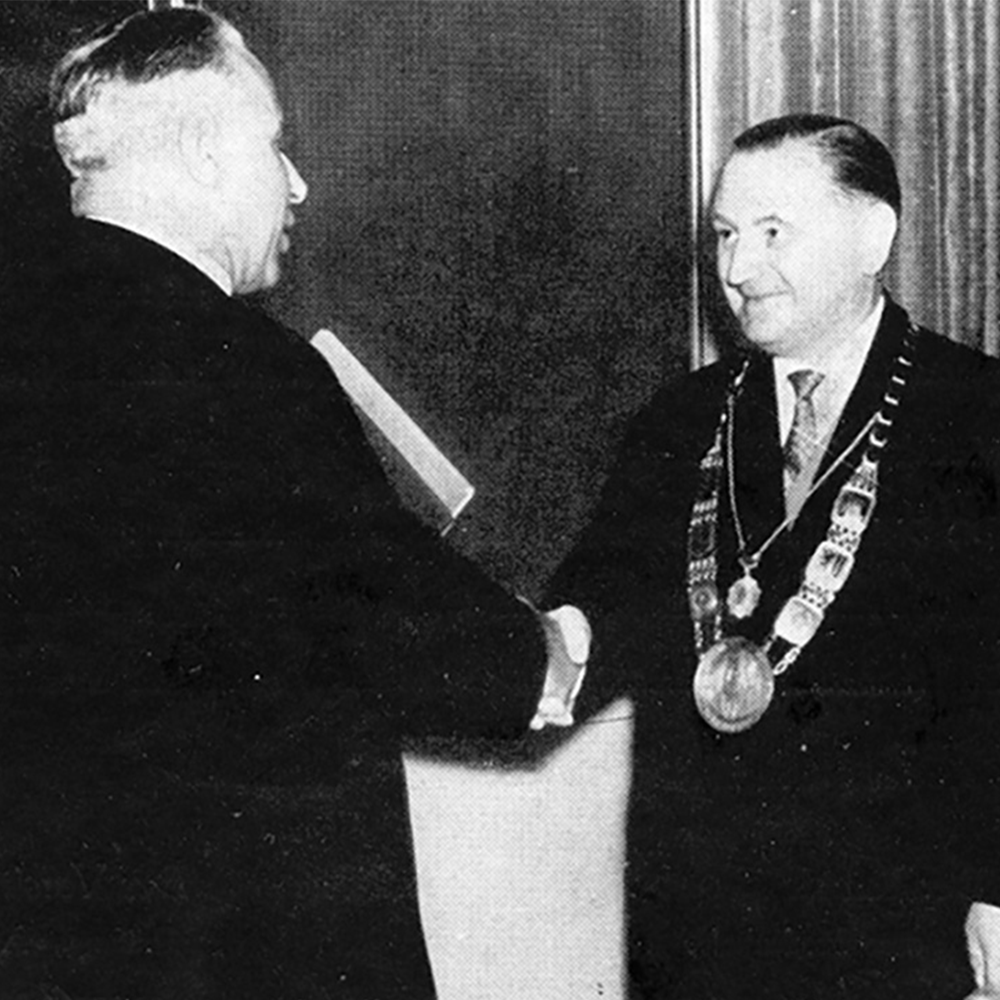
Handover of the rectorship of the Technical University of Dresden to Kurt Schwabe in 1961.
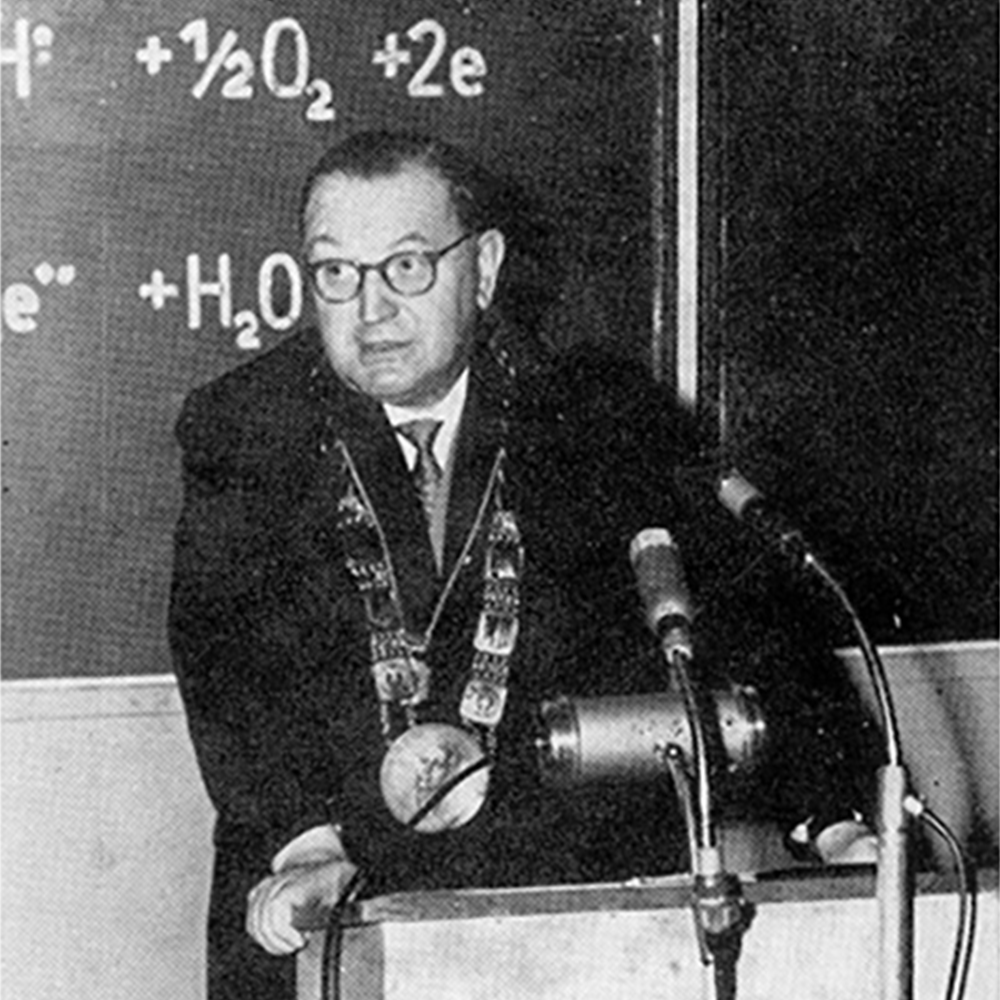
Inaugural speech by Kurt Schwabe upon assuming the rectorship.
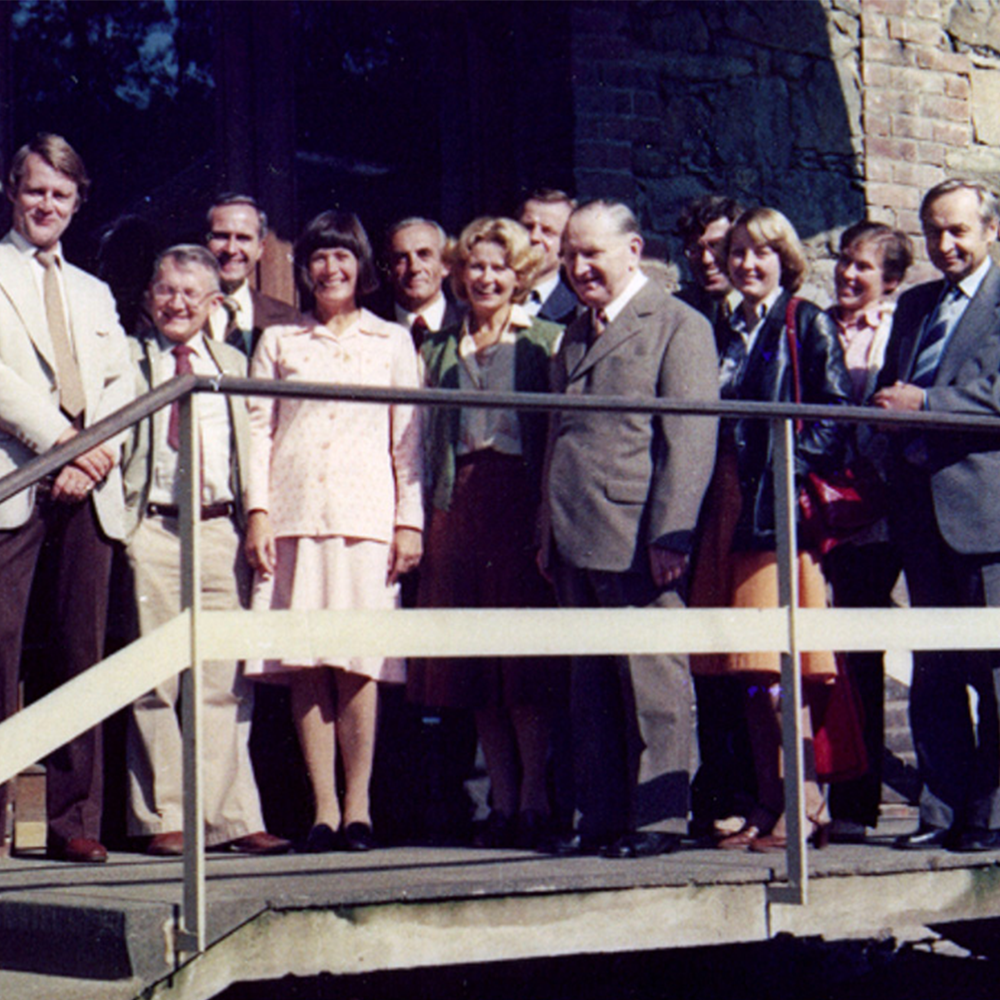
Participants of the “International Symposium on Corrosion Research” in 1981 in Leipzig in front of the entrance of the Meinsberg Research Institute.
SCHWABE FOUNDATIONS

THE KURT SCHWABE FOUNDATION
The Kurt Schwabe Foundation was established in 1990 as a legally recognized civil-law foundation based in Waldheim, Germany.
As a non-profit organization, its mission is to support scientific research in the fields of measurement and sensor technology, physical chemistry, and electrochemistry. In doing so, it continues the legacy of Prof. Kurt Schwabe, the founder and former owner of the Meinsberg Research Institute.
THE PROFESSOR SCHWABE FOUNDATION
In 1972, Prof. Dr.-Ing. habil. Kurt Schwabe (founder) established the “Professor Schwabe Foundation” as a dependent foundation at Technische Universität Dresden. Since 1996, the foundation has continued to operate under the same name at the university.
The foundation’s purpose is to support young researchers by awarding prizes for outstanding dissertations and master’s or diploma theses in the fields of physical chemistry and electrochemistry, submitted at Technische Universität Dresden.
The foundation’s advisory board determines the award amount.
SCHWABE AWARDS

KURT SCHWABE PRIZE OF THE SAXON ACADEMY OF SCIENCES IN LEIPZIG
Established in 1983, the Kurt Schwabe Prize recognizes outstanding scientific and technical achievements as well as exceptional contributions to environmental conservation and resource preservation. The award was founded in honor of chemist Kurt Schwabe.
The prize ceremony takes place during a public session of the Saxon Academy of Sciences in Leipzig. Recipients receive an honorary certificate and a monetary award.
For more information about the prize and past recipients, click here.
PROFESSOR SCHWABE AWARD
Since 1996, the Professor Schwabe Foundation at Technische Universität Dresden has honored outstanding young researchers with the Professor Schwabe Award for exceptional dissertations and diploma or master’s theses in physical chemistry or electrochemistry. The awarded works must have been submitted and defended at Technische Universität Dresden.
The first Professor Schwabe Award in 1996 was presented to Heike Drummer for “Application of Modern Raman Spectroscopy Methods for the Characterization of Thin Solid Layers” and Axel Fikus for “ATR Investigations on Oxidic Electrode Materials Using Ex-Situ and In-Situ FT-IR Spectroscopy.”
The award winners in recent years were:
2019
- Dr. Albrecht Benad: Development and Optimization of Nanoparticle Composite Materials
- M.Sc. Sandra Heckel: Improving the Brightness of Probes for SWIR Imaging: Quantum Dot/Dye Conjugates
- M.Sc. Peter Franze: Characterization of a Spin-On-Glass Material for Use as an Interlayer Dielectric in the Damascene Process
2017
- Dr. Bertold Rasche: A Heavy Graphene Analogue among the Bismuth Subiodides as a Host for Unusual Physical Phenomena
- M.Sc. Alexander Herms: Construction of Thermophoretic Swimmers
2016
- Dr. Tommy Lorenz: Theoretical Studies of Nanostructures Using Density Functional Theory
2015
- Dr. Jan Poppe: Spectroelectrochemical Investigations of Semiconductor Nanoparticles
- Dr. Martin Ebermann: Micromechanical Multi-Band Fabry-Pérot Interferometers for Applications in Infrared Spectroscopy
- M.Sc. Frederic Berndt: Temperature-Dependent Single-Molecule FRET Measurements of RNA Thermometers
2014
- Dr. Martin Hermenau: Lifetime Studies on Organic Solar Cells
- Dr. Alfred Kick: Surface Plasmon Resonance-Based DNA Chips and Nucleobase Sequence Design
- M.Sc. Julia Linnemann: Surfactant-Mediated Anodic Deposition of Nanostructured Manganese Dioxide Layers and Their Capacitive Properties
2013
- Dr. Anja Henning: Use of Single-Stranded DNA Templates for Creating Functional DNA Nanostructures
- M.Sc. David Teich: Simulation of Helical Nanostructures and Investigation of Their Applicability as Energy Storage Systems
2011
- Dr. Daniel Wolf: Electron Holographic Tomography for 3D Imaging of Electrostatic Potentials in Nanostructures
- M.Sc. Anne-Kristin Herrmann: Synthesis and Investigation of the Properties and Possible Applications of Disordered, Porous Structures Made of Noble Metal Nanoparticles
- M.Sc. Lydia Liebscher: Synthesis and Characterization of Mesocrystals from Lead Chalcogenide Nanoparticles via Non-Classical Crystallization
- M.Sc. Matthias Schelter: Investigation of Measurement Methods for Determining Dissolved Gases in Media Used for Biogas Production
2010
- Dr. Nadja-C. Bigall: Synthesis of Noble Metal Nanoparticles and Their Superstructures
- Dr. Lars David Renner: Polymer-Supported Lipid Bilayer Membranes for the Integration of Transmembrane Proteins
- M.Sc. Tobias Schulz: Synthesis and Physicochemical Investigation of Imidazolium Salts and Their Derivatives
2009
- Dr. Igor Popov: Molybdenum Chalcogenide Nanowires as Building Blocks for Nanodevices
- Dr. Volker Schulz: Study on Shortening the Regeneration Phase of Piezoresistive Hydrogel Sensors
- M.Sc. Clemens Kubeil: Numerical Simulation of Ion Currents in Nanopores
2008
- Dr. Christiane Falkenberg: Investigation of the Properties of Transparent Electron Transport Materials and Their Application in Pin Solar Cells
- M.Sc. Dirk Dorfs: Synthesis and Characterization of Type-II Semiconductor Nanoheterostructures
- M.Sc. Pagra Truman Sutanto: Multifunctional Field-Effect Transistors for Flow, Chemical, and Biosensing Applications in Lab-on-a-Chip Systems
KURT SCHWABE PRIZE OF THE EUROPEAN FEDERATION OF CORROSION
Initiated by the Hungarian Corrosion Society (HUNKOR) and supported by the Kurt Schwabe Foundation, the Kurt Schwabe Prize was established in honor of the late Professor Kurt Schwabe.
The award includes a medal, a diploma of merit, and a €500 monetary prize. It is presented to a young scientist in recognition of outstanding scientific, technical, and teaching contributions in the field of corrosion.
Nominees must have no more than 13 years of professional experience (including PhD) at the time of EUROCORR. In exceptional cases, candidates exceeding this limit may also be considered due to extraordinary circumstances such as illness, parental leave, or similar situations.
For more information and a list of past recipients, click here.
KURT SCHWABE SYMPOSIUM
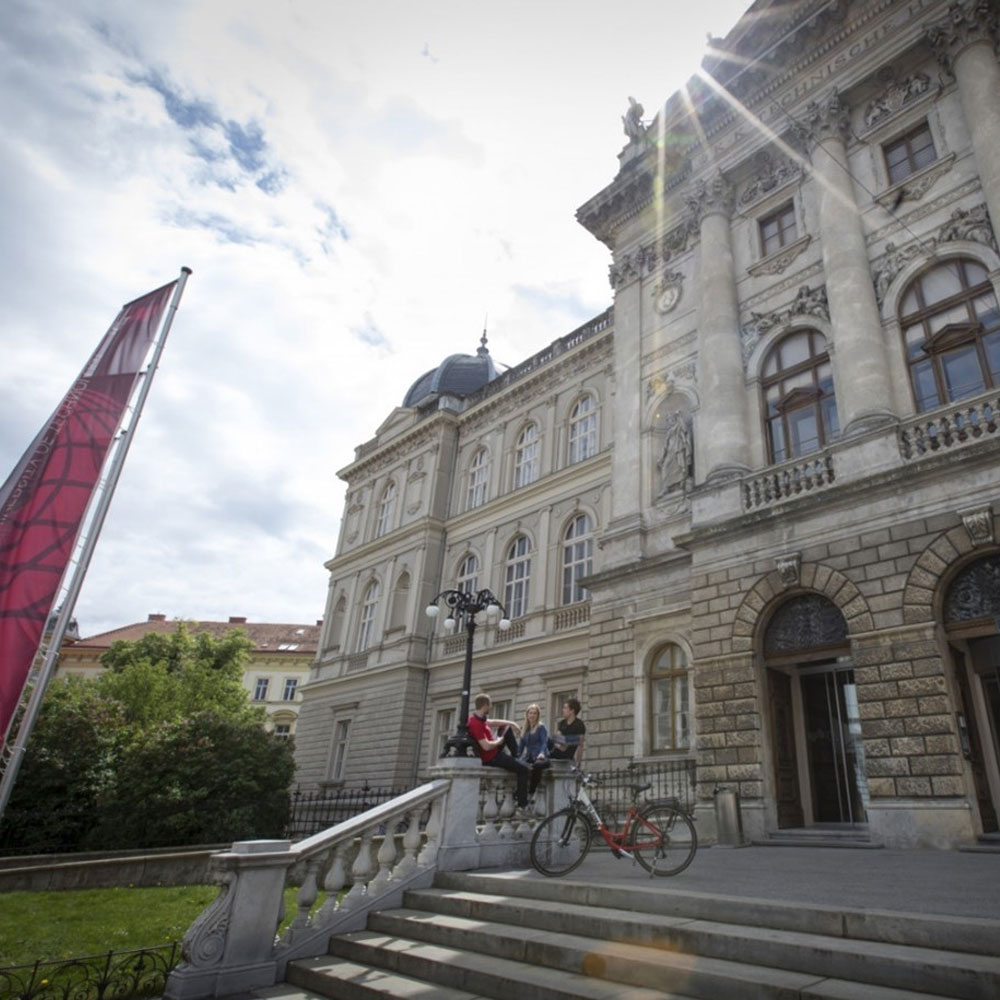
Kurt Schwabe Symposium in Graz, 2022
In 1993, Erika Kálmán established the Kurt Schwabe Symposium in memory of Kurt Schwabe. The symposium covers various fields of electrochemistry and has been hosted in several locations, including Tata, Dresden, Zakopane, Helsinki, Erlangen, Krakow, and Mittweida/Meinsberg.
In 2019, the 8th Kurt Schwabe Symposium was held in Split, alongside the 7th Regional Symposium on Electrochemistry of South-East Europe.
The 9th Kurt Schwabe Symposium took place in 2022 in Graz, jointly organized with the 8th Regional Symposium on Electrochemistry of South-East Europe.